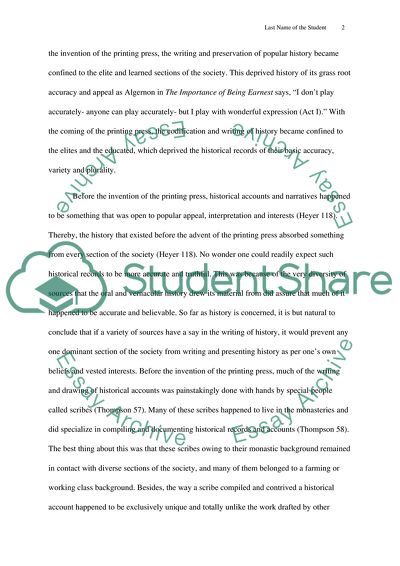Cite this document
(How the Printing Press Effected History Essay Example | Topics and Well Written Essays - 1500 words, n.d.)
How the Printing Press Effected History Essay Example | Topics and Well Written Essays - 1500 words. Retrieved from https://studentshare.org/history/1878395-how-the-printing-press-effected-history-and-how-it-can-be-related-to-oscar-wildes-the-importance-of-being-earnest
How the Printing Press Effected History Essay Example | Topics and Well Written Essays - 1500 words. Retrieved from https://studentshare.org/history/1878395-how-the-printing-press-effected-history-and-how-it-can-be-related-to-oscar-wildes-the-importance-of-being-earnest
(How the Printing Press Effected History Essay Example | Topics and Well Written Essays - 1500 Words)
How the Printing Press Effected History Essay Example | Topics and Well Written Essays - 1500 Words. https://studentshare.org/history/1878395-how-the-printing-press-effected-history-and-how-it-can-be-related-to-oscar-wildes-the-importance-of-being-earnest.
How the Printing Press Effected History Essay Example | Topics and Well Written Essays - 1500 Words. https://studentshare.org/history/1878395-how-the-printing-press-effected-history-and-how-it-can-be-related-to-oscar-wildes-the-importance-of-being-earnest.
“How the Printing Press Effected History Essay Example | Topics and Well Written Essays - 1500 Words”. https://studentshare.org/history/1878395-how-the-printing-press-effected-history-and-how-it-can-be-related-to-oscar-wildes-the-importance-of-being-earnest.


